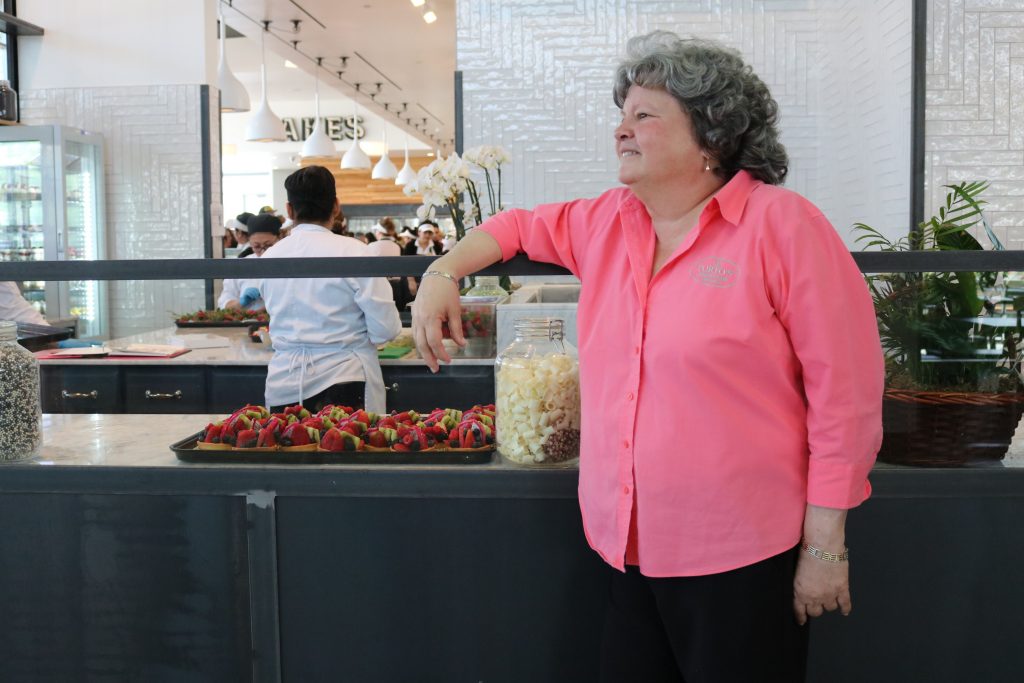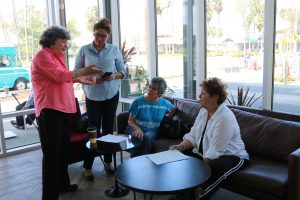
“What do you think I wanted to get? I was 14 years old.” Betty Porto playfully says about the moment she got off the plane in Miami, Florida from Cuba in 1971. “I wanted to chew gum. I wanted to drink a Coca-Cola, and I wanted to get some sunglasses.”
Porto and her family fled to the United States when she was only 14 years old. As any teenager, she knew she was going to miss her childhood friends–the ones that ran and biked around the calm streets of Manzanillo, Cuba.
The island went through an era of sociopolitical instability when Fidel Castro rose to power. Her mother, Rosa Porto, lost her job after Castro’s communist government shut down all private enterprises.
Cuban government officials sent her father, Raul Porto, to a labor camp when they found out he applied to leave the country through Freedom Flights, a resettlement program sponsored by the U.S. government.
They even sent young Betty to work at a camp when she was 13 years old.
These difficult circumstances prompted Porto’s mother to start her underground baking business to support the family. This baking talent, born out of necessity, has sustained the family for decades.
While she loved her small town, Porto was happy to leave it for a new country where her family could be free.

Porto remembers trying fruits that were forbidden in Cuba upon landing in Miami.
“I remember going to a friend’s house and I remember they opened a can of peach,” Porto said with a smile. “That [peach] was so sweet and so good. And we never had that in Cuba because there was rationing. So that peach […] that was the best thing that I ever had in my life.”
Then her family relocated to Los Angeles, California, where they had a larger network of family and friends.
It was not hard for 14-year-old Porto to make friends at her new school. She befriended other Cuban children, but also children of Mexican and Vietnamese descent.
But Porto worried about her parents, because they were in their 40s and had to leave their life in Cuba. “Now they come here with no language and they had to start all over,” she said. “So when they should’ve been enjoying their life with a secure job, they went back to zero. So I feel sorry for them.”
Porto assimilated into the American culture with the help of her classes offered through her school’s English as a Second Language program. That’s where she learned about barbecue.
But the teenager experienced some hard lessons, too, such as cultural tensions in the 1970s. Porto would get called out with nicknames due to the frictions between Latino immigrants and American-born Latinos.
“They used to call me TJ, which means that you are from Tijuana,” she said. “I had no clue what they meant. So they would say, ‘TJ!’ [and] I didn’t care. Didn’t bother me. There were gang fights; there were drugs; but we were away from all that because we were very naïve immigrants […].”
Regardless of the challenges, her parents made sure Porto was proud of who she was and where she came from. They encouraged her to speak Spanish and eat Cuban food.
“I had a bunch of Cuban friends, and friends from our [home] town … living within three miles of each other, so that’s another reason why we kept speaking Spanish,” Porto explains. “We also learned the English.”
The Porto family kept baking and founded what is known today as Porto’s Bakery, a tasty phenomenon in Southern California. Porto and her siblings worked at the bakery as teenagers and young adults. Those experiences solidified their love and passion for their culture as well as the family business.

Each of the Porto siblings pursued college degrees, and continue to work for the family bakery.
“We are in the business of creating memories and making friends,” Porto said.
Porto manages the customer service side of the restaurants, while her siblings are in charge of finances and cake design.
Porto has two daughters. She encourages them to take pride in their multicultural heritage (their father is Japanese). She says her struggles and successes are proof dreams really do come true in America.